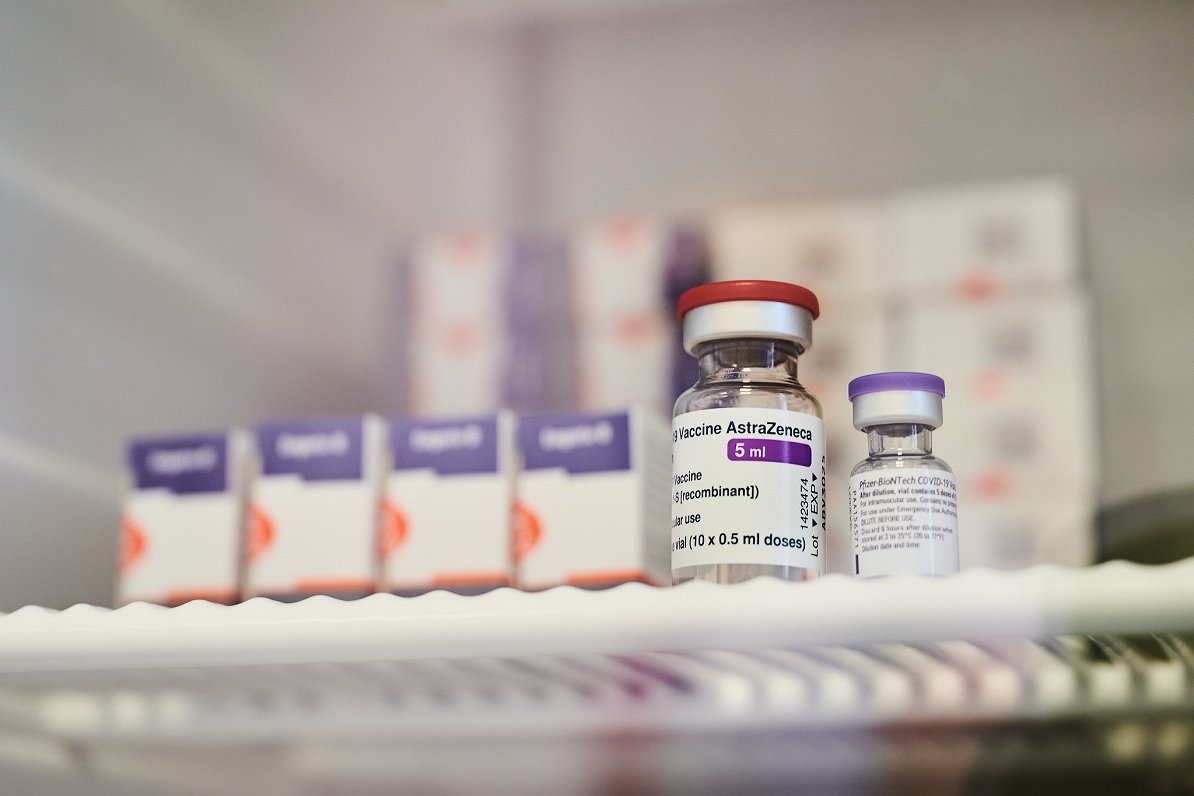The Disease Prevention and Control Center (SPKC), the State Council of Immunization (IVP), the State Agency of Medicines (ZVA) and the Health Inspectorate (VI) recommended Monday night to temporarily suspend vaccination with AstraZeneca vaccine against Covid-19 in Latvia as a precautionary measure.
Papildu piesardzības nolūkā Latvijā uz laiku aptur vakcināciju ar AstraZeneca vakcīnu. Vairāk informācijas: https://t.co/uw6HfXlccY
— Zāļu valsts aģentūra (@ZVALatvija) March 15, 2021
The ZVA indicated that the decision was based on reports from individual countries of the European Union (EU) concerning thromboembolism and similar issues observed following the vaccine.
At the same time, the responsible services of the Ministry of Health stress that so far there are no data on causal links between vaccination and serious health problems.
The decision to suspend vaccination with the AstraZeneca vaccine for a period of up to 2 weeks has only been taken for additional precautions until information on any causal association or otherwise has been received on the cases reported so far.
Dace Zavadska, Chair of the State Council of Immunization, told Latvian Television that it will take 1-2 weeks to investigate whether reported cases of blood clotting that developed after being vaccinated with AstraZeneca have any causal relationship or whether they are events unrelated to the vaccine.
The Council has followed up with all reports in Latvia and events in European countries, and this is only normal when new medicines are registered, said Zavadska.
So far, there has been no evidence of vaccine hazards, but the Council, taking into account information from other countries, has tended to favor caution, explained Zavadska.
The European Medicines Agency (EMA) has yet to assess the information received on any potential causal link between the AstraZeneca vaccine with thromboembolism cases, and considers that "benefits of the AstraZeneca vaccine in preventing COVID-19, with its associated risk of hospitalization and death, outweigh the risks of side effects."
However, a number of EU Member States - Germany, Denmark, the Netherlands, Italy, Norway, France, Bulgaria, Ireland, Iceland - have suspended vaccination with this vaccine for a period of time pending the assessment of reported cases.
Until now, no reports have been received in Latvia in relation to thromboembolism. Information regarding adverse reaction of Covid-19 vaccines received by the State Agency of Medicines will be regularly published on the website of the ZVA.
With the recommendation to temporarily suspend vaccination against Covid-19 with the AstraZeneca vaccine, vaccination offices are encouraged neither to use the already open vaccine vials, nor to open new ones.
Health authorities point out that residents who have so far been vaccinated with the AstraZeneca vaccine have no cause for concern. If a feeling of nausea persists for more than 1-3 days following vaccination or other medical conditions occur, people should contact their family doctors for advice.
Meanwhile, representatives of the World Health Organization have yet to have any reliable data that shows AstraZeneca's vaccine against Covid-19 could be dangerous.
"As of today, there is no evidence that the incidents are caused by the vaccine and it is important that vaccination campaigns continue so that we can save lives and stem severe disease from the virus", said the WHO.
However, a special WHO panel meeting is planned on Tuesday, which will analyze all available data.
Specialists are also working closely with the European Medicines Agency, which plans to consider the matter on Wednesday.




























